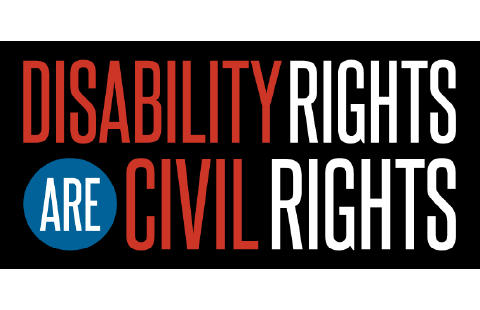Ask Kathy: 5 People Extremely Important to the Disability Rights Movement

From Frank Harrison:
Who are significant leaders now or in the past with a disability? One that comes to mind is Franklin D. Roosevelt. Despite this important positive example, do you feel there is inequity resulting in the underrepresentation of persons with a disability in political, social, or economic leadership positions in the USA?
Hi Frank,
Thank you for this very important question. Many disability rights leaders have passed. It’s important to remember that activism is born from a desire for change or a need to improve one’s situation and that need will always exist. Here is a list of five people that I think have been extremely important to the disability rights movement:
In 2013 Lydia XZ Brown was honored at the White House by President Obama. Lydia is a disability justice advocate, community organizer, educator, attorney, and writer whose work mostly concerns violence against disabled and marginalized people. Brown was the instructor for an online course about intersectionality and disability that I had the honor of participating in. The New Hampshire Leadership Series at the University of New Hampshire sponsored it.
Justin Dart (1930 - 2002)
Known as the Godfather of the Americans with Disabilities Act (ADA), Justin Dart visited each of the fifty states at least five times to advocate for the historic civil rights law that protects disabled citizens from discrimination. He co-founded the American Association of People with Disabilities (AAPD). In 1998 Bill Clinton awarded Justin the Presidential Medal of Freedom.
Bob Williams had a distinguished four-decade career in federal and state government. He helped advocate for the passing of the ADA, and most recently served as Director of the US Independent Living Administration at the US Department of Health and Human Services (HHS). He is currently the Policy Director of Communication FIRST and has advanced the rights of people with significant disabilities. I met Bob Williams ten years ago. He was amazing. I was impressed by his knowledge and humor.
Judy Heumann (1947 - 2023)
Judy Heumann will forever be remembered as the “Mother of the disability rights movement.” She is most famous for the historic 1977 Section 504 sit-in that she organized. Section 504 of the Rehabilitation Act protected individuals with disabilities from being denied benefits and services from any program that receives federal funds. This eventually paved the way for the Americans with Disabilities Act. Judy Huemann was also featured in the Oscar-nominated documentary Crip Camp: A Disability Revolution.
Ed Roberts (1939 -1995)
Nicknamed “Special Ed” Roberts dedicated his life to the independent living movement. Ed was the first person with a significant disability to graduate from UC Berkley. In 1976, Governor Jerry Brown appointed him as Director of the California Department of Vocational Rehabilitation. He kept that job with the same agency that had once labeled him too severely disabled to work until 1983. Ed Roberts also participated in the historic Section 504 sit-in with Judy Huemann. He lived in an iron lung for many years. As a child, I remember meeting him in 1968 when I was a poster child for Easter Seals. I asked him why he was in that big metal thing, and he said it helped him breathe.
Underrepresentation
When it comes to leadership, there has always been inequity for people with disabilities in most areas of life. The Americans with Disabilities Act has allowed people the opportunity to be employed, but because lots of people with disabilities are unable to work full-time, gainful employment remains just out of reach. One important thing that Lydia XZ Brown reinforced for me is that one’s ability to earn should not be connected to their value as a person. The need to keep Medicaid for medical insurance requires that citizens with disabilities stay within a low-income bracket. There aren’t enough people with disabilities who are seeking high-level employment opportunities because they are afraid to go to work, they don’t understand the benefits rules, which are complicated and always changing. There is a lot of untapped potential in the disability community. It takes money to participate in social activities and be involved in the community.
If you think about disability as the largest minority group that anyone can join at any time, then you know that disability issues are community issues. Whole families are affected by these issues. It is not uncommon for extended family members to become involved in the disability rights movement. Grassroots advocacy is a series of small but significant actions, e.g., talking to your legislators, eventually leading to big changes. You don’t have to run for office or start a new organization to make a big difference. The value of lived experience and the ability to tell your story well should not be underestimated. So, speak up!